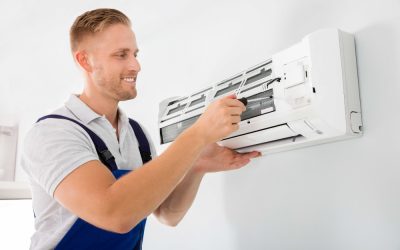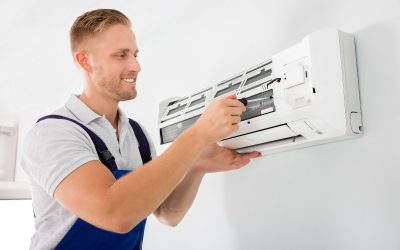Maintaining a comfortable temperature inside your home during the warmer months of the year can be an expensive task. People have tried a variety of cooling systems in their search for the perfect balance between efficiency and function. Some of these methods include using portable or window based air conditioners, but these units are noisy, inefficient machines that rarely provide an even temperature. Alternatives supplied by an Air Conditioning Contractor in FL include the HVAC (Heating, Ventilation and Air Conditioning) and the split or ductless air conditioner.
The HVAC is perhaps the most common air conditioner in the U.S. Practically all newly constructed homes have this system installed and most older homes have been retro-fitted to support the system. The HVAC works by applying principles of heat transfer and refrigeration on a smaller scale, collecting heat from the home and transferring it outdoors. For this to function properly the A/C system uses mechanical systems to move the refrigerant as well as circulating the air. The compressor in the external cabinet is used to pump a refrigerant through an internal coil that collects heat from the home and then cycle that coolant to an external coil where the heat is released.
Another type of air conditioner that contractors such as Eco Air Conditioning can install are the ductless or split zone air conditioners. These units work similar to the HVAC except they don’t have the extra ventilation system that the HVAC requires. The ductless system transfers cool air into each zone with an individual cooling unit for that particular zone. The main benefit is the ability to control different temperatures throughout the house.
Having your comfort appliances inspected and repaired by an experienced Air Conditioning Contractor in FL is the first step to ensuring the long life of those appliances. Like many modern appliances, there are no user serviceable parts inside and even something as simple as testing the refrigerant level requires specific tools and knowledge of the system. Cleaning the system is just as important as servicing them. For example, dust and dirt can collect on the A/C’s evaporator coil and mix with the moisture that accumulates during operation. This slimy mud can block the transfer of air within the HVAC.


